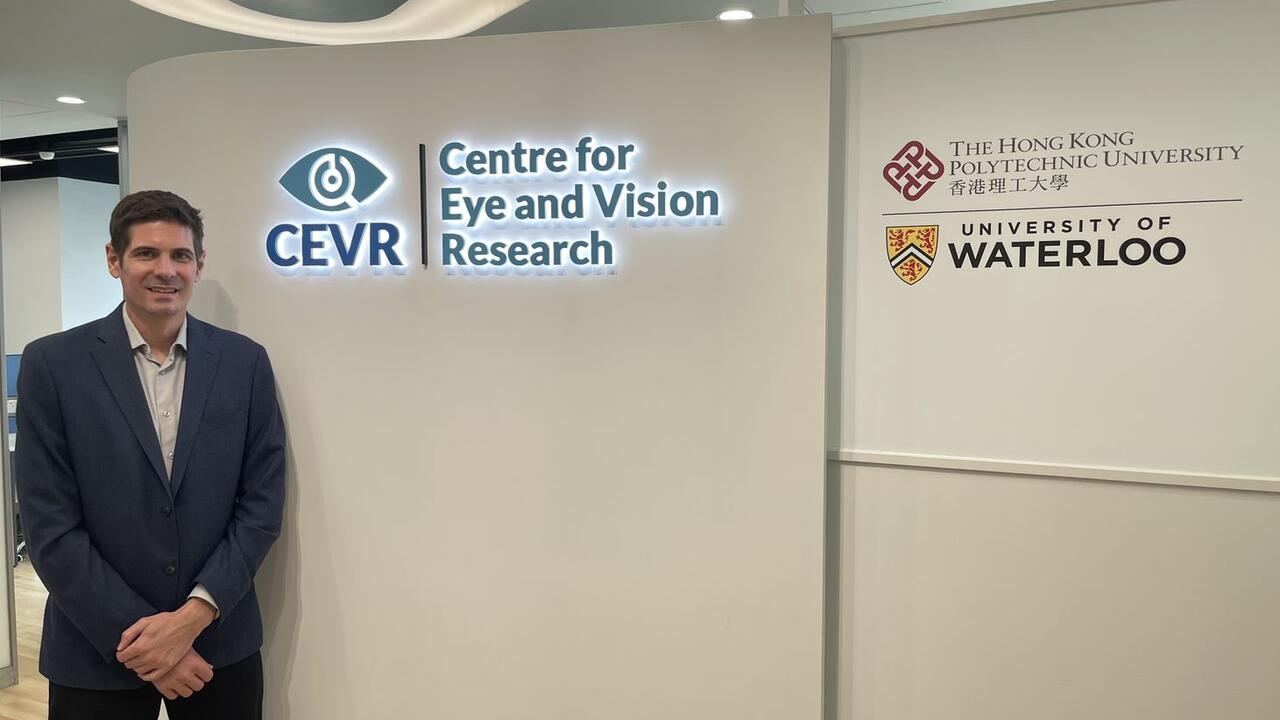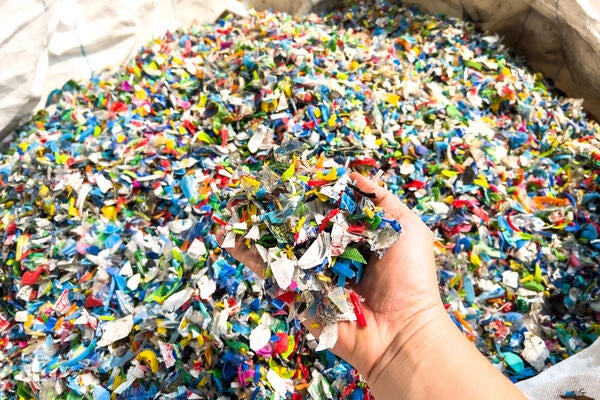
Waterloo professor awarded New Zealand‘s top scientific prize
Professor Ben Thompson is a member of the award-winning inter-disciplinary research team changing international neonatal hypoglycemia practice

Professor Ben Thompson is a member of the award-winning inter-disciplinary research team changing international neonatal hypoglycemia practice
By Media RelationsA University of Waterloo professor has been named a winner of New Zealand’s Te Pūiaki Putaiao Matua a Te Pirimia Science Prize, the country’s top award for scientific discoveries that have had a significant economic, health, social and/or environmental impact around the world.
Ben Thompson, a professor in the School of Optometry & Vision Science and 2022 University Research Chair, is part of the award-winning inter-disciplinary neonatal glucose studies research team out of the University of Auckland’s Liggins Institute. Over the past 20 years, this team’s research has been central in developing new ways to diagnose, treat and prevent blood sugar imbalance in babies. Their research into neonatal hypoglycemia has changed practice around the world, saving millions of health-care dollars and improving the lives of mothers and babies worldwide.
Key discoveries have included the use of dextrose (sugar) gel immediately after birth, which is now recommended internationally as a first-line treatment for low blood sugar. Other significant contributions have included the development of Gluco-Light, a non-invasive glucose monitoring device that reduces the need for repeated heel-prick tests and a new evidence-based method for testing vision in young children with hypoglycemia.
Professor Thompson said their research team was inspired to do this research because the problem of understanding and treating blood sugar in babies has been around for decades. “Almost a third of all babies are born at risk of having low blood sugar. It is a very common problem that, without a solution, could lead to irreversible brain injury and other complications later in life.”
Tackling such a broad range of questions over the past 20 years of study – including what low blood sugar does to a child’s vision and an understanding of what they see – has required a broad range of skills in the team, says Thompson.
“Our research team has needed specialties like bioengineering, psychology, education and more in order to be successful,” Thompson said. “It’s been really rewarding to be able to offer my background in vision science to the overall expertise of such a talented team.”
Presented by New Zealand’s Prime Minister Jacinda Ardern during the May 31st ceremony, the team will receive a $500,000 prize that will allow researchers to keep progressing in their work, including their ongoing work to develop a national guideline in New Zealand to support the management of babies at risk of hypoglycemia.

Read more
New evidence-based classification rules expand access and improve fairness for Para Cross Country and Para Alpine skiers

Hand holding small pieces of cut colourful plastic bottles, which Waterloo researchers are now able to convert into high-value products using sunlight. (RecycleMan/Getty Images)
Read more
Sunlight-powered process converts plastic waste into a valuable chemical without added emissions

Dr. Travis Craddock, professor and Canada Research Chair, says the team's findings change our basic knowledge of biology (University of Waterloo).
Read more
New study reveals quantum-level effects in biology with major implications for treatment of some brain diseases
The University of Waterloo acknowledges that much of our work takes place on the traditional territory of the Neutral, Anishinaabeg, and Haudenosaunee peoples. Our main campus is situated on the Haldimand Tract, the land granted to the Six Nations that includes six miles on each side of the Grand River. Our active work toward reconciliation takes place across our campuses through research, learning, teaching, and community building, and is co-ordinated within the Office of Indigenous Relations.